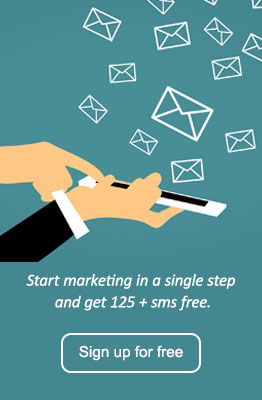
How to plan Mass text messaging for Holiday season 2025
The holiday season in 2025 could be busy. Stores will overflow with shoppers, websites can be packed with orders, and phones will buzz with limitless notifications. Everyone can be attempting to find satisfactory deals, managing gift lists, and monitoring deliveries. In the centre of this rush, your task is to ensure that your clients in reality note you. That’s where bulk mass text messaging is available. A quick text cuts through distractions in a way emails or social posts regularly can’t. Texts are speedy, personal, and usually concise. With the proper plan, you can use mass texting to hook up with clients when it matters most. Let’s have a look at how you can prepare a robust holiday strategy.
Why Mass Text Messaging Works for the Holidays
During the vacation season, people constantly check their phones. They’re comparing expenses, confirming deliveries, and expecting shipping signals. This makes texting one of the most reliable approaches to reach them.
With mass text messaging, you can:
- Announce flash sales or exclusive discounts
- Send shipping reminders and order updates
- Alert customers about last-minute holiday deals
- Invite shoppers to in-store or online events
Set Goals Before Sending Messages
Every campaign should begin with a goal. Think about what you want from your bulk texting during the season. Are there more sales on Black Friday? Extra traffic to your store the week before Christmas? Or maybe customer loyalty that lasts into the new year?
When your goal is clear, your messaging will be sharper. For example:
- Drive sales → share promo codes or bundles.
- Boost foot traffic → send location details and special hours.
- Reward loyal customers → offer early access or special deals.
Build and Segment Your Contact List
A campaign is only as strong as the list behind it. Collecting numbers the right way matters. Always get permission before sending texts. It’s not only a legal requirement but also a sign of respect to your customers.
Once you have a list, organize it into groups. For example:
- Loyal shoppers who purchase all year round
- New customers who just signed up
- Bargain hunters searching out closing-minute offers
By segmenting, you can send more relevant texts in the vicinity of blasting the identical message to everybody.
Create Messages That Fit the Holiday Spirit
Holiday messages need to be short, festive, and action-pushed. Nobody has time to read a long block of text in December.
Tips for writing powerful mass text messaging campaigns:
- Keep it under 160 characters.
- Use urgency when it makes sense: “Ends tonight” or “Today only.”
- Add a clear call to action: “Shop Now,” “Reserve Today,” or “Get Code.”
Timing Your Texts the Right Way with Mass Texting
The right message at the wrong time can be ignored. Timing is critical in mass texting.
Here are some helpful guidelines:
- Mid-morning or early afternoon works better than late night.
- Send one or two messages every week in the course of the season.
- Plan around massive days like Black Friday, Cyber Monday, and Christmas Eve.
Spacing your messages maintains customers engaged without feeling crushed.
Automate and Schedule for the Busy Season
During the vacation rush, you do not have time to send each text manually. That’s why automation is useful. You can prepare your campaigns in advance and let them run on schedule.
Automation can:
- Remind customers of holiday sales
- Trigger cart abandonment texts
- Send shipping updates automatically
Tools like ExpertTexting let you schedule messages and awareness on serving clients whilst your campaigns run in the background.
Stay Compliant With Regulations
Texting is strong, but it comes with regulations. Laws together with TCPA within the U.S. and GDPR in Europe require that:
- Customers must opt in before receiving texts
- Every message must include an easy opt-out option
- Data must be stored securely
Following these rules protects you from penalties and builds trust with your audience. ExpertTexting helps you manage compliance while running effective campaigns.
Measure and Improve Campaigns
Once your texts go out, you need to track how they perform. Look at:
- Open rates and clicks on links
- Promo code redemptions
- Sales or visits linked to your texts
You can also A/B test specific messages. For example, examine “20% Off” against “Free Shipping” and notice which brings higher outcomes. Over time, these insights assist you in fine-tuning future campaigns.
Texting That Works
The holiday season in 2025 can be full of messages competing for your customers’ interest. Mass texting offers you an instantaneous way to reach them at the right second. By setting desires, segmenting your list, crafting clear messages, and respecting compliance rules, you can make your bulk text messaging marketing campaign effective and customer-friendly.
When planned early, this approach enables you to connect with your audience in the course of their busiest time of year. With ExpertTexting, you have the tools to schedule, send, and measure campaigns that make an impact when it matters most.
Contact us now or learn more on our website.
FAQs
1. What is the best time to send holiday mass texting campaigns?
Late mornings or early afternoons work best. Avoid very late hours.
2. How often should I text during the holidays?
One or two texts a week is usually enough. More than that can feel pushy.
3. Is mass text messaging useful for small businesses?
Yes. Even a local shop can benefit from a few well-timed texts about sales or events.
4. What mistakes should I avoid in holiday text campaigns?
Sending too many texts, writing unclear messages, and forgetting opt-out instructions are common errors.
5. Do customers really need to opt in first?
Yes, consent is required by law and helps maintain trust.
